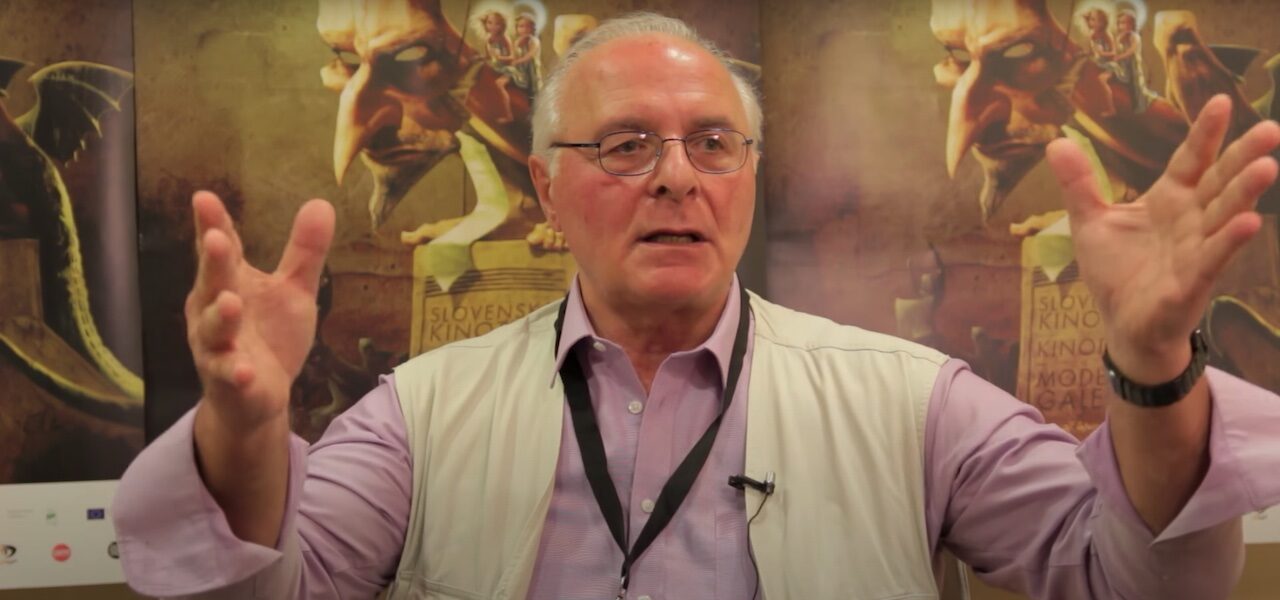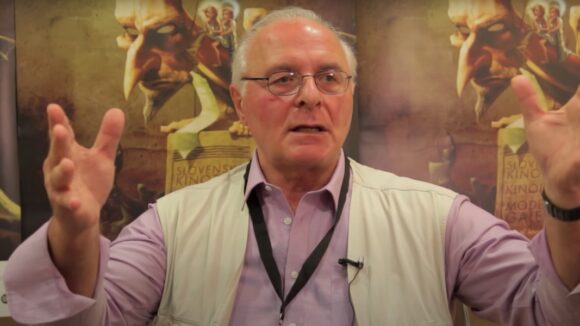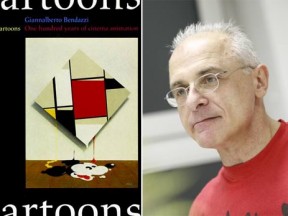

Giannalberto Bendazzi, Pioneering Animation Historian, Dies At 75
When writing historical articles, we at Cartoon Brew often need to check facts — who directed Mexico’s first animated feature? — or refresh our background knowledge — what did the fall of the Soviet Union do to Russia’s studios? In these moments, more often than not, we turn to the books of Giannalberto Bendazzi that bookend our shelves.
Bendazzi, who died aged 75 on December 13, started writing about animation history at a time when very few scholars showed interest in the subject. By the end of his career, he was pre-eminent in a field that he had helped develop in the first place. His books, especially the three-volume Animation: A World History (2016), are definitive; his knowledge of the medium’s past was unparalleled.
Born in Ravenna, Italy, Bendazzi took a roundabout route into animation. He studied law in Milan, but never practiced. He then worked as a critic, covering film in general. From the late 1970s, he grew increasingly interested in animation, befriending artists like Alexandre Alexeieff and Bruno Bozzetto and writing about their work.
Over the following decades, Bendazzi published papers, articles, and many books, almost all of them about animation. There was a monograph on Quirino Cristiani, the Italian-born Argentine who directed El Apóstol (1917), widely considered the first animated feature. There was a booklet on Osvaldo Cavandoli, creator of Italy’s famed La Linea series (1971–86).
But the books he is best known for are Cartoons: One Hundred Years of Cinema Animation (1994), a pioneering history of the medium, and the work into which this book was expanded, Animation: A World History. Bendazzi worked on these three volumes for seven years, with a large network of collaborators.
These histories pay close attention to lesser-known animation industries — Africa, Central Asia, and the Caribbean are all covered — and to independent, auteur-led productions in general. As Bendazzi wrote in the opening to Animation: A World History, “This historian cares about freedom. Any blessed-by-money film has enough power to stand up and make itself known. A film of humble origins has much less power and hence much less freedom.”
Bendazzi’s legacy in animation scholarship stretches beyond his writing. He co-founded ASIFA-Italy in 1982 and the Society for Animation Studies in 1987. He taught at the Università degli Studi di Milano (2002–09) and at the Nanyang Technological University of Singapore (2013–15). He had also been adjunct professor at Griffith University in Australia.
I’ll echo others and say that Bendazzi was generous with his time. Some years ago, he coached me through the writing of my first ever book proposal, helping me understand what makes academic publishers tick. I was later able to repay the favor when he asked me to delve into the British Library’s archives and fish out an old review of an Italian animated short from 1965, La gazza ladra.
I never got to read what he was writing at the time — he died before I could ask. His passing has been mourned by scholars, artists, and filmmakers in the animation community:
Sad to learn about the passing of one of the greatest animation historians: Giannalberto Bendazzi. His book was the first true animation bible I ever held and I got to thank him once at the Café des Arts in Annecy. RIP https://t.co/4VmcUUmGCn
— simonwilchesc (@simonwilchesc) December 14, 2021
Such a lovely man and so passionate about animation. A terrible loss.
— Joanna Quinn (@joannaq) December 14, 2021
So sad to hear this news. A genuine pioneer and great company. A big man with a big heart. Thank you Giannalberto….RIP
— Paul Wells (@Beautiful_Frame) December 14, 2021
Very sad to hear of the death of the great animation scholar, writer and professor Giannalberto Bendazzi, who died yesterday aged 75. May he rest in peace.
— Helen McCarthy (@tweetheart4711) December 14, 2021

